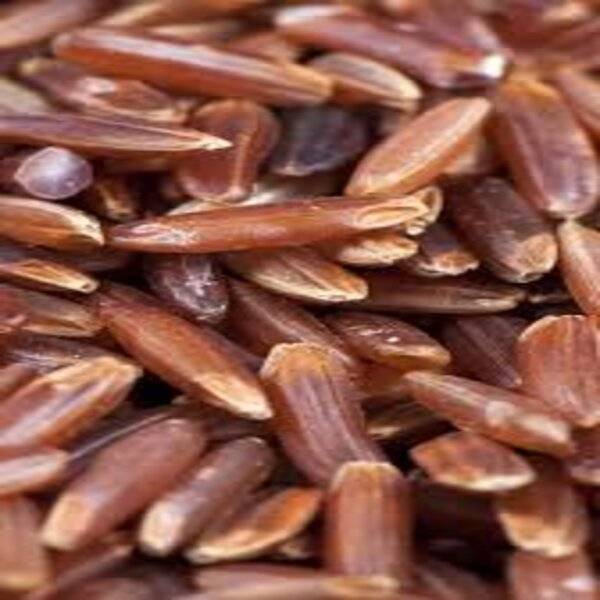In the world of grains, red rice stands out not only for its vibrant hue but also for its remarkable health benefits. This ancient grain, cherished for centuries in Asian cultures, has recently gained global recognition for its nutritional prowess. Packed with essential nutrients and antioxidants, red rice offers a plethora of health benefits that contribute to overall well-being. Let's delve into the fascinating realm of red rice and explore eight compelling reasons why incorporating it into your diet can lead to a healthier lifestyle.
1. Rich in Antioxidants:
At the heart of red rice's health benefits lies its impressive antioxidant content. Antioxidants are crucial for combating oxidative stress and reducing the risk of chronic diseases such as cancer, heart disease, and diabetes. Red rice contains anthocyanins, flavonoids, and phenolic compounds, powerful antioxidants that neutralize free radicals and protect cells from damage, promoting longevity and vitality.
2. Supports Heart Health:
Red rice is a heart-healthy choice due to its high fiber and low glycemic index. Fiber helps lower cholesterol levels by binding to cholesterol in the digestive system and eliminating it from the body, thus reducing the risk of heart disease and stroke. Additionally, the low glycemic index of red rice prevents sudden spikes in blood sugar levels, promoting stable energy levels and reducing the risk of insulin resistance.
3. Promotes Digestive Health:
With its abundant fiber content, red rice supports digestive health by promoting regular bowel movements and preventing constipation. Fiber adds bulk to stool, facilitating its passage through the digestive tract and promoting the growth of beneficial gut bacteria. A balanced gut microbiome plays a crucial role in absorbing nutrients, supporting immune function, and maintaining overall well-being.
4. Aids in Weight Management:
For those striving to maintain a healthy weight, red rice can be a valuable ally. Its high fiber content promotes satiety, keeping you feeling full for longer periods and reducing overall calorie intake. Additionally, the complex carbohydrates in red rice provide sustained energy, preventing cravings and excessive snacking. By adding red rice to your meals, you can assist in achieving your weight management objectives while providing your body with vital nutrients.
5. Regulates Blood Sugar Levels:
Individuals with diabetes or those at risk of developing the condition can benefit from including red rice in their diet. Unlike refined grains, which can cause rapid spikes in blood sugar levels, red rice has a low glycemic index, meaning it releases glucose into the bloodstream gradually. This steady release of energy helps prevent blood sugar fluctuations, making red rice a suitable choice for managing diabetes and promoting overall metabolic health.
6. Boosts Immune Function:
A robust immune system plays a crucial role in shielding the body from infections and illnesses.Red rice contains various vitamins, minerals, and antioxidants that support immune function and enhance the body's ability to fight pathogens. Vitamin E, vitamin C, and zinc, found in abundance in red rice, play key roles in strengthening immune response and reducing the risk of infections. By incorporating red rice into your diet, you can fortify your body's natural defenses and stay resilient against illnesses.
7. Provides Essential Nutrients:
In addition to its health-promoting properties, red rice is a nutrient-rich grain that supplies essential vitamins and minerals necessary for optimal health. It is particularly rich in iron, magnesium, phosphorus, and B vitamins such as thiamine and niacin. Iron is essential for oxygen transport and energy production, while magnesium supports muscle function, nerve health, and bone density. By including red rice in your diet, you can ensure you're meeting your body's nutritional needs and promoting overall vitality.
8. Supports Environmental Sustainability:
Choosing red rice over conventional white rice not only benefits your health but also contributes to environmental sustainability. Red rice requires less water and fewer pesticides and fertilizers to grow compared to white rice varieties. By supporting sustainable agriculture practices and consuming locally sourced red rice, you can reduce your ecological footprint and support the preservation of natural resources for future generations.
In conclusion, red rice emerges as a nutritional powerhouse, offering a myriad of health benefits that promote overall well-being. From its antioxidant-rich profile to its support for heart health, digestion, and immune function, red rice stands as a versatile and nourishing grain suitable for inclusion in any diet. By incorporating red rice into your meals, you can embark on a journey toward better health and vitality while contributing to environmental sustainability. Embrace the vibrant hues and wholesome goodness of red rice, and reap the rewards of a healthier and more vibrant life.



No comments yet
Be the first to share your thoughts!